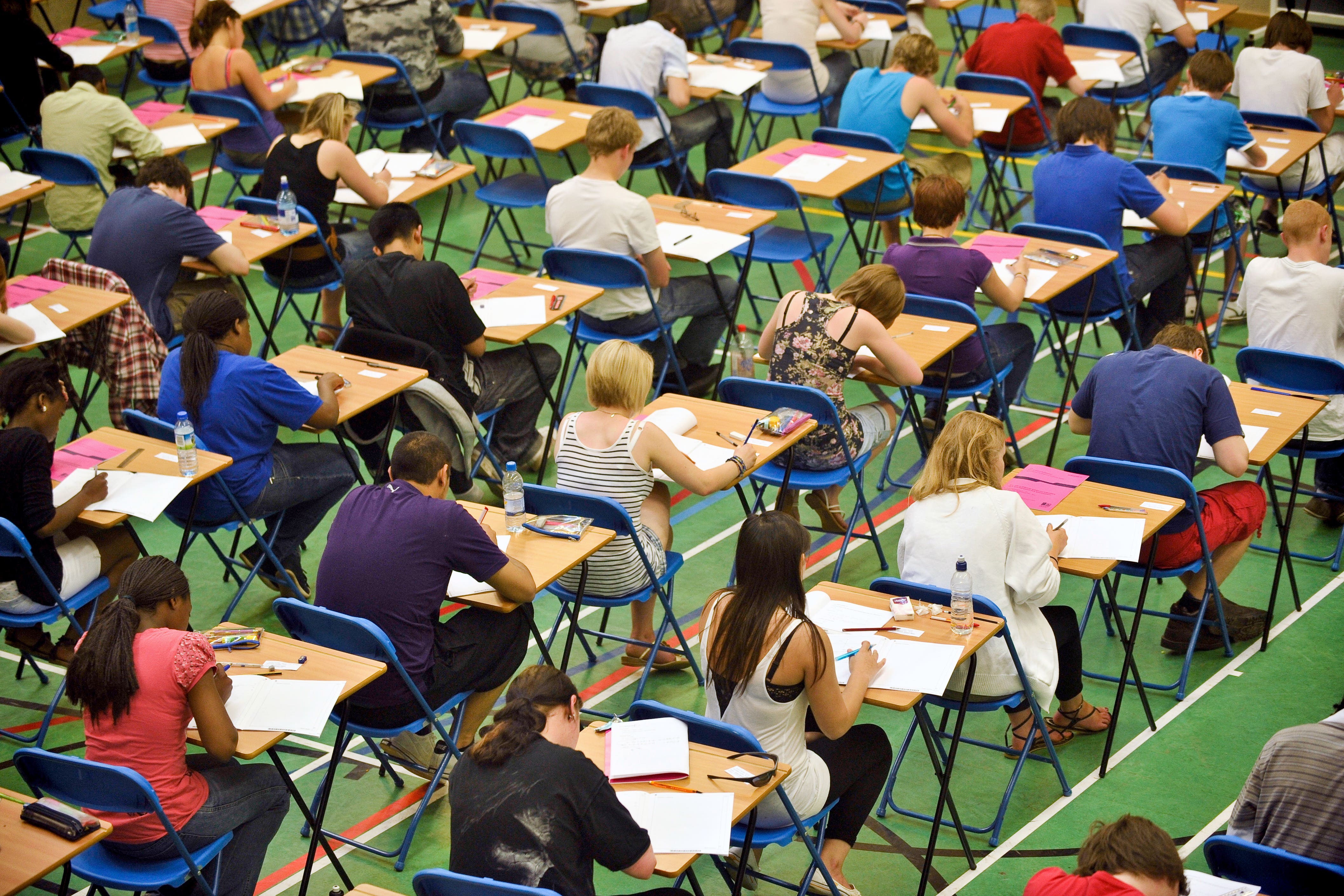Army of volunteer tutors helping to turbocharge the A-level results of disadvantaged pupils
Tutor The Nation has seen university students provide nearly 13,000 hours of free tutoring since pandemic

Your support helps us to tell the story
From reproductive rights to climate change to Big Tech, The Independent is on the ground when the story is developing. Whether it's investigating the financials of Elon Musk's pro-Trump PAC or producing our latest documentary, 'The A Word', which shines a light on the American women fighting for reproductive rights, we know how important it is to parse out the facts from the messaging.
At such a critical moment in US history, we need reporters on the ground. Your donation allows us to keep sending journalists to speak to both sides of the story.
The Independent is trusted by Americans across the entire political spectrum. And unlike many other quality news outlets, we choose not to lock Americans out of our reporting and analysis with paywalls. We believe quality journalism should be available to everyone, paid for by those who can afford it.
Your support makes all the difference.Students at universities across the country are volunteering to help disadvantaged school children turbocharge their A-level results, which are set to be revealed on Thursday.
Tutor The Nation, which was founded during the Covid pandemic in 2020, has so far provided more than 12,000 hours of free one-to-one tutoring to state school pupils working towards their GCSEs and A-levels.
More than 1,000 pupils who come from low-income backgrounds have so far been matched with and tutored by volunteer university students so far. Out of that number, 80 per cent of those being helped were taking A-levels.
According to the charity’s data, one in five pupils on the programme last year achieved at least one grade higher than they were predicted at A-level – with the majority either meeting or exceeding their predicted grades. Last year, grades – but often not predictions – returned to normal after the pandemic.
Teachers described the programme as making “a big difference” to their pupils’ confidence in their subjects and said they had noticed “a huge change in attitude towards study within weeks” of them starting to receive tutoring.
Modestas Riabovas, who received maths tutoring in the last academic year from a University of Oxford student, is now studying computer science at the University of Leicester and is volunteering as a tutor himself.
“The lessons were spectacular and made learning the subject much more interesting,” said Mr Riabovas, who achieved a high B grade after initially being predicted a C.
Mr Riabovas said he found one-to-one online tutoring “much more efficient and effective” than classroom learning because he didn’t need to be in a specific location and “could learn from the comfort of my own room”.
He added: “My tutor would go in-depth on certain topics, which gave me greater subject knowledge and helped me significantly at university.”

Students enrolled at more than 80 universities including Oxford, Cambridge and Imperial College London have so far signed up to be volunteer tutors.
But the charity warned it needs more volunteer tutors to join its ranks, after seeing the number of school pupils it supports grow by 25 per cent in a year.
“University students across the country are giving back and giving young people from disadvantaged backgrounds the chance to improve their grades,” said the charity’s founder, Jacky Lambert.
“Free tutoring programmes like this make a world of difference to schools, and we’re excited to continue expanding across the country as more and more universities partner with us.”
Helen Thomas-Jones, director of sixth form at Thetford Academy, said the Norfolk school had found the Tutor The Nation team to be “patient and encouraging of our students and incredibly flexible in their approach to helping us as a sixth form in supporting as many students as possible”.
“They have supported students who have really struggled to access more challenging A-levels and conversations have extended beyond just subject knowledge, with tutors offering support and guidance around university life to students hoping to study at degree level after their A-levels,” said Ms Thomas-Jones.
“After the pandemic where most educational provisions moved online, our students became quite disinterested in ‘video calls’ but the offer from Tutor The Nation has been really positively received by students, where engagement in other, similar tuition services has not been as keenly taken up.”

Toby Morton-Collings, an Oxford chemistry student who has volunteered as a tutor since March 2022, said he finds the return of excitement for a particular subject “one of the most rewarding things to see in a student, and a quality by which I measure progress”.
“I’m used to teaching people who thoroughly dislike the A-level or feel overwhelmed at the prospect of scaling the mountain of content they must learn,” he said.
“I’ve found that simply showing a student that people do in fact exist with a true passion for what they teach reinforces their own appreciation for a subject, which is so often stripped away by the conditions under which they learn it.”

Warning that large class sizes and mounds of content often “leave students feeling terrible about subjects they had previously loved”, he suggested that reinstilling a student’s passion in their subject also helps them develop their own self-confidence, which has “a profound impact when it comes to exams”.
His assertions are borne out in the charity’s research. Out of 148 children whose school teachers responded to a survey, teachers said tutoring helped improve the confidence of 79 per cent of those pupils.
“The way in which we assess students has an often-overlooked component in that the confidence a student has in themself is very, very important,” said Mr Morton-Collings.
“Examinations are tiring, stressful and emotional periods in a student’s education, and they will need confidence in themselves to pull them through this.”
Hundreds of thousands of pupils in England, Wales and Northern Ireland are set to receive their A-level results on Thursday, with those sitting GCSEs to be informed of their results a week later.
Join our commenting forum
Join thought-provoking conversations, follow other Independent readers and see their replies
Comments